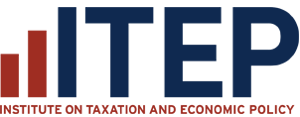December 3, 2024
December 3, 2024
The 2025 legislative season will be here before we know it, and state lawmakers have begun unveiling their priorities and proposals. Unfortunately, despite stagnating revenue growth, many lawmakers continue to push for deep, regressive tax cuts – often before the full impact of previous tax cuts is felt.
While Louisiana jumped the gun and replaced its tiered personal income tax structure with a flat tax and a new 5 percent state sales tax this month, other state lawmakers are pushing for similar proposals next year. Gov. Jim Pillen of Nebraska wants to raise sales taxes to fill a revenue shortfall, Oklahoma lawmakers are discussing large personal income tax cuts with a plan for full elimination, and North Carolina Senators approved a new cap on personal income tax rates that would further hamstring future lawmakers from raising progressive revenue.
Major State Tax Proposals and Developments
- The LOUISIANA legislature approved Gov. Landry’s regressive tax package that will replace the state’s tiered personal income tax brackets with a flat 3 percent rate and cut corporate taxes –using sales tax increases to make up for a portion of the lost revenue. The tax swap results in the lowest earning 20 percent of Louisiana households paying 13 percent of their income in state and local taxes, while the top 1 percent will pay just 5.6 percent. Additional details and analysis of the tax package can be found in our recent blog.
State Roundup
- KANSAS Gov. Laura Kelly urges caution to legislators pushing for additional tax cuts in 2025. Kansas has lowered revenue estimates due to tax cuts passed in 2024, and the full impact of those tax cuts is unknown. A range of property tax cuts are being discussed and considered.
- Republican lawmakers in MICHIGAN proposed shifting the state’s gas tax allocation from funding public education to infrastructure, leading many education advocates to worry about potential cuts to schools.
- NEBRASKA Gov. Jim Pillen will again attempt to raise the state sales tax rate to plug the easily predictable budget shortfall that is now materializing as recently enacted income tax cuts for the wealthy and business subsidies are taking effect. This same idea was quickly shut down when he proposed it earlier this year. Gov. Pillen’s stated reasoning for shifting taxes onto the middle- and low-income families who already pay the highest rates in the state is that he would like his state to be more like South Dakota, which leans extremely heavily on those families and has the lowest taxes in the nation for households in the richest 1 percent.
- The NORTH CAROLINA Senate approved a measure reducing the cap on the state’s personal income tax rate to 5 percent from 7 percent. Because the rate is currently 4.5 percent the measure would not have an immediate impact. But it would prevent future tax increases and tie the hands of lawmakers seeking to raise revenue to fund key investments in future years.
- OKLAHOMA legislators are discussing a bill that would immediately cut personal income taxes by $240 million and reduce the rate per a triggered reduction until the tax is ultimately eliminated. The state’s personal income tax, which raises about a third of the state’s revenue and is based on ability to pay, is the most progressive component of the state’s tax system.
What We’re Reading
- WBEZ Chicago explores why southside suburbs are experiencing record-breaking property tax increases.
- ITEP and partner organization Invest in Louisiana published numerous pieces to demonstrate the regressive nature of Gov. Landry’s tax plan, including a blog and op-ed written by ITEP and a statement by partners after the tax package passed.
If you like what you are seeing in the Rundown (or even if you don’t) please send any feedback or tips for future posts to Aidan Davis at aidan@itep.org. Click here to sign up to receive the Rundown via email.


